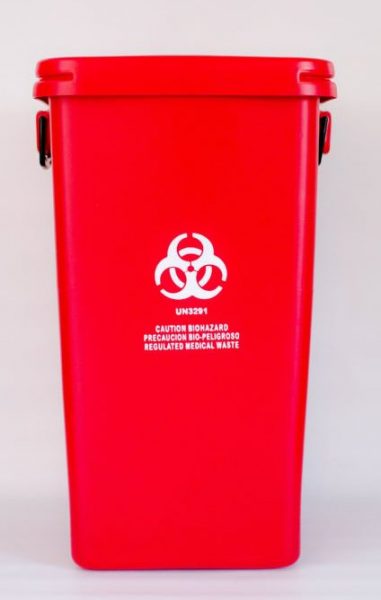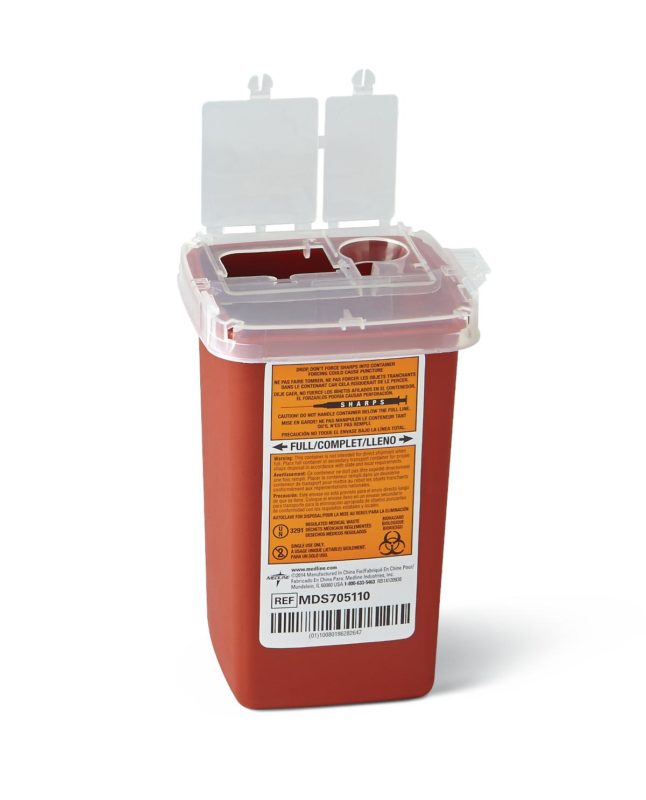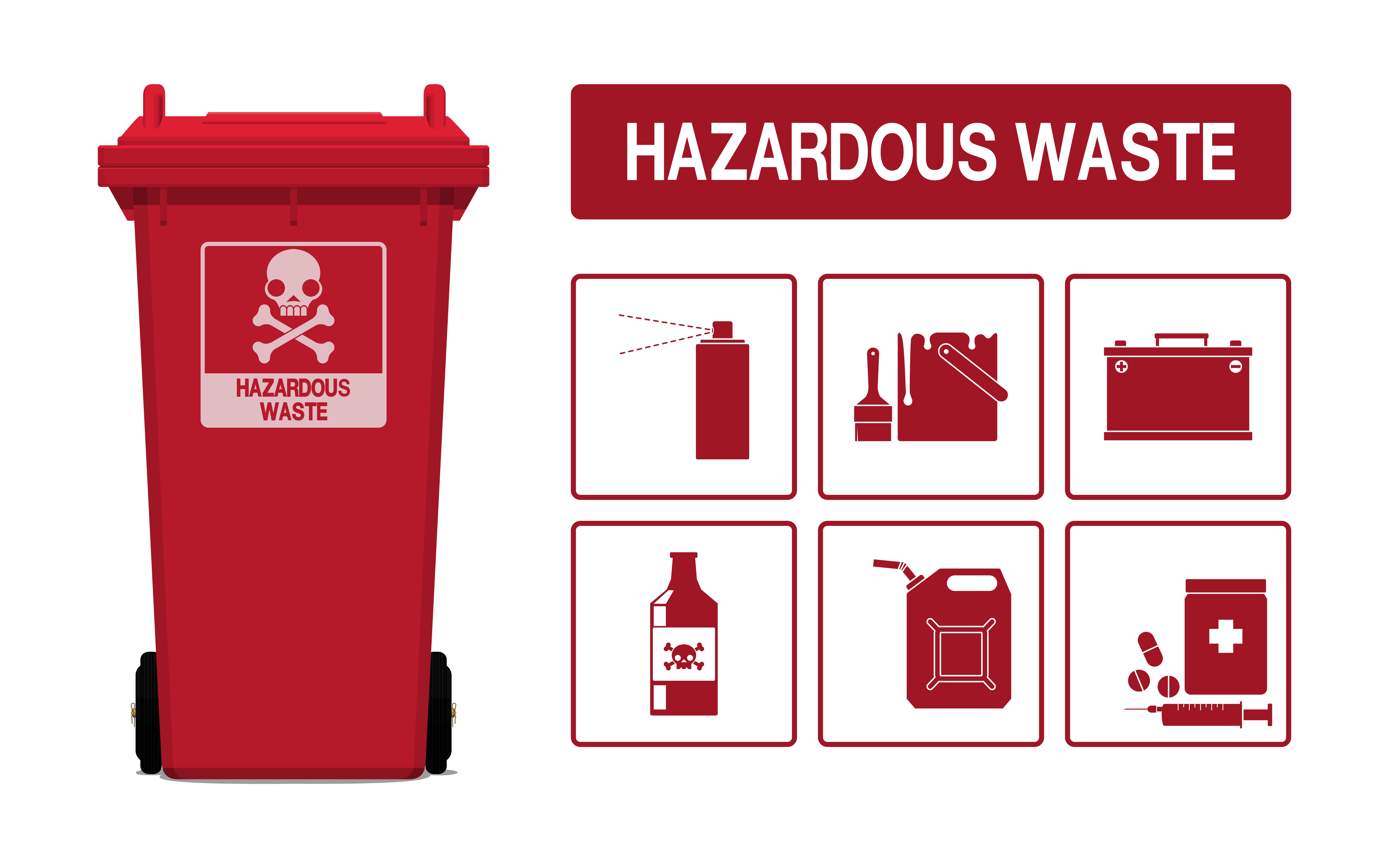Guardians of Tidiness: Local Medical Waste Removal Service for Your Peace of Mind
Guardians of Tidiness: Local Medical Waste Removal Service for Your Peace of Mind
Blog Article
Reliable and Ecologically Friendly Medical Garbage Disposal Solutions
In the ever-evolving area of health care, the issue of clinical waste disposal continues to be a topic of extremely important importance. As hospitals, facilities, and other health care centers strive to offer high quality person treatment, they have to additionally address the challenge of effectively and responsibly disposing of their waste.
Waste Segregation Practices
Efficient waste segregation techniques are necessary to make certain the proper and secure disposal of clinical waste. Medical waste, which includes materials polluted with potentially transmittable materials, must be managed in such a way that lessens the danger of injury to both public wellness and the environment. Proper waste segregation plays a vital function in accomplishing this objective.
Waste partition includes the splitting up of different types of waste based on their attributes and prospective dangers. This procedure guarantees that each kind of waste is treated and taken care of appropriately (medical waste disposal services with WasteX). It begins at the point of generation, where healthcare centers ought to have designated bins and containers for different waste groups, such as sharps, contagious waste, pharmaceutical waste, and non-hazardous waste
By segregating clinical waste at the source, doctor can prevent cross-contamination and lower the risk of direct exposure to contagious agents. This practice likewise facilitates the recycling and recuperation of certain products. As an example, segregating and reusing clean plastics and glass lowers the demand for raw products and lessens the environmental influence of medical garbage disposal.

Autoclaving and Sterilization Methods
In order to make sure the risk-free and proper disposal of clinical waste following reliable waste partition methods, healthcare centers must use autoclaving and sterilization methods. Autoclaving is a commonly used technique that makes use of high-pressure heavy steam to decontaminate medical waste.
Another generally made use of sterilization technique is chemical sterilization. This involves treating the waste with chemicals such as ethylene oxide or hydrogen peroxide, which kill bacteria by interrupting their cellular framework. Chemical sterilization is typically used for heat-sensitive items or materials that can not withstand the heats of autoclaving. However, it is essential to keep in mind that chemical sanitation requires proper handling and disposal of the chemicals utilized, as they can be dangerous to human health and the setting otherwise managed properly.
On-Site Waste Treatment Systems
Healthcare centers have actually executed on-site waste treatment systems to deal with the disposal of medical waste in a efficient and safe manner. These systems provide a convenient and affordable remedy for taking care of clinical waste produced within the facility. On-site waste treatment systems utilize different innovations to treat and dispose of medical waste on-site, reducing the demand for transportation to off-site centers.
One commonly used on-site waste treatment system is the microwave innovation. This technology makes use of microwave power to sanitize and sanitize clinical waste, minimizing its volume and rendering it secure for disposal. One more system is the chemical disinfection modern technology, which includes dealing with clinical waste with chemicals to kill pathogens and lower its harmful nature. This technique is specifically reliable Web Site for liquid clinical waste.
They remove the threat of medical waste being messed up throughout transportation, decreasing the potential for contamination and direct exposure to unsafe substances. On-site treatment systems lower the total environmental impact of clinical waste by lessening transportation and the requirement for garbage dump room.
Recycling and Repurposing Initiatives
As health care facilities pursue lasting waste monitoring techniques, they are significantly checking out recycling and repurposing campaigns as a method of lowering the ecological effect of clinical waste. Recycling and repurposing efforts include discovering ingenious methods to reuse or transform medical waste into new items or products. This not just assists to reduce the quantity of waste that finishes up in land fills or burners but also decreases the consumption of raw materials and power needed for producing new items.
One example of recycling in the health care market is the reprocessing of single-use medical tools. These tools, such as surgical tools or catheters, are generally discarded after a solitary use. Improvements in innovation and stringent sanitation processes have actually made it possible to securely tidy, disinfect, and recycle these gadgets multiple times. This not just decreases the amount of waste created however also saves medical care facilities substantial expenses linked with buying brand-new devices.
Another recycling campaign includes the recycling of plastic containers, such as drug containers or syringe coverings. These containers can be collected, sorted, and sent to reusing facilities where they are refined, melted down, and transformed into brand-new plastic products. This helps to save resources and lower the need for virgin plastic manufacturing.
Along with reusing, repurposing initiatives entail discovering alternate usages for medical waste. Shredded paper waste from medical records or packaging products can be repurposed as bedding material for pets or as insulation product. Similarly, natural waste such as food scraps from health care facilities can be composted and used as plant food in yards or farming areas.

Renewable Power Solutions
One efficient approach to minimizing the environmental influence of medical care operations involves carrying out eco-friendly energy services. Healthcare centers, such as centers and medical facilities, consume significant amounts of power for various functions, consisting of lights, heating, air conditioning, and running medical devices. By transitioning to renewable resource sources, these facilities can substantially minimize their carbon footprint and add to a much more sustainable future.

Implementing sustainable energy remedies in healthcare centers not just decreases greenhouse gas discharges yet likewise offers long-lasting cost financial savings. While the preliminary investment in eco-friendly energy framework may be higher, the long-term functional prices of eco-friendly energy systems are dramatically reduced compared Discover More to typical fossil fuel-based power resources. Additionally, renewable resource systems are reliable and can offer a nonstop and secure power supply, making sure constant health care services even throughout power interruptions or emergencies.
Final Thought
In final thought, carrying out ecologically friendly and reliable medical waste disposal solutions is crucial for maintaining a lasting health care system. By taking on waste segregation methods, autoclaving and sterilization methods, on-site waste therapy systems, recycling and repurposing efforts, and renewable energy remedies, health care centers can considerably decrease their ecological effect.
It begins at the factor of generation, where health care facilities must have marked bins and containers for different waste groups, such as sharps, transmittable waste, pharmaceutical redirected here waste, and non-hazardous waste.
In order to make sure the secure and appropriate disposal of medical waste complying with reliable waste partition practices, medical care centers must use autoclaving and sterilization strategies.Healthcare facilities have applied on-site waste treatment systems to resolve the disposal of medical waste in a risk-free and reliable way. On-site waste treatment systems make use of numerous modern technologies to deal with and dispose of medical waste on-site, decreasing the requirement for transport to off-site facilities.
As health care facilities strive for sustainable waste management techniques, they are significantly exploring recycling and repurposing campaigns as a method of reducing the ecological effect of medical waste. - medical waste removal service
Report this page